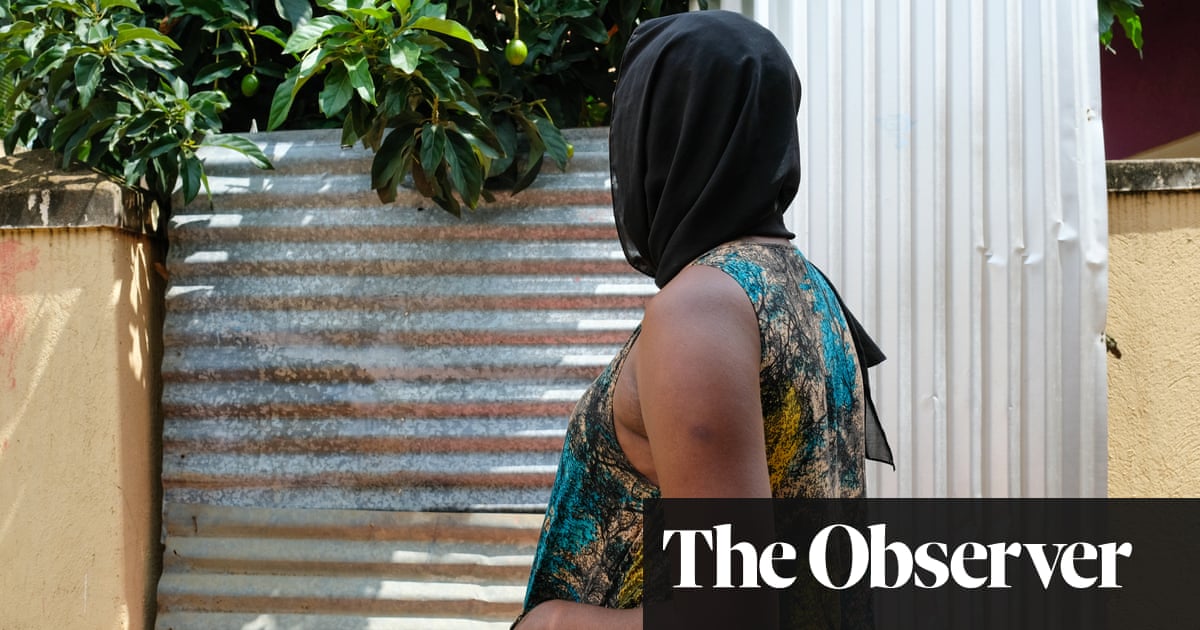
Hurtling into town on a bike in the small hours of the morning wearing a tiger onesie might not be that unusual for the average 21-year-old. But if Amelia Luck from Fowey, Cornwall, is doing it, she isn’t rushing to a party or a rave – she is heading to the lifeboat station, responding to an emergency call-out that can come at any time of day or night.
“When you hear that beep from the pager, your heart does a little jump and, well, you just run, no matter what time it is. You don’t know what situation you’re going to, you just go,” she said.
Luck has just been appointed the youngest ever female helm of a Royal National Lifeboat Institution (RNLI) lifeboat, taking charge of Fowey’s inshore vessel after just four years volunteering with the charity. She is one of a growing number of women across the country to have a leading role within the RNLI’s search and rescue teams, which are still very male-dominated.
Like almost all RNLI crew, Luck is a volunteer who takes time out from her normal life to help those in trouble at sea whenever the call comes. She is currently doing an apprenticeship at a local cider firm but carries a pager at all times, prepared to drop everything when it goes off.
“I can get to the station in a few minutes on my bike from home, although it’s harder in the summer, trying to weave through the tourists on the narrow streets,” said Luck. On average, within 13 minutes from receiving the initial instruction from the coastguard, the lifeboats are in the water.
The RNLI has received criticism recently from anti-migrant groups over its role in saving people who have attempted to cross the Channel in small boats. Staff have been sent threatening emails and the charity’s website was hacked. A crew in Hastings, East Sussex, was reportedly subjected to abuse in late November as they tried to launch.
When Luck heads out to sea, her only thought is for the safety of her crew and the people she is going to rescue. “When it’s stormy, you’re just worried about what’s going on out there and how the people you are going to are – how long they’ve been there and if they’re OK. That’s all you are thinking about,” she said. “You just want to get there as quickly and safely as possible.”
Women still make up only 11% of the RNLI’s lifeboat crew, and when Luck joined she was the only female crew member at the station. “I remember standing there as a 17-year-old girl in a room full of men – it was pretty daunting. And I think they were a bit daunted too, worrying about things like would I need a separate changing room and loo,” she said. “But now nobody even thinks about it. I’m just another helm – I’m not treated any differently, although it took me a while to live down the tiger onesie episode.”
She has been involved in 134 training and live lifeboat launches – from people cut off by the tide to paddle boarders in trouble – of which 36 were actual rescue incidents, or “shouts”, as they are called. “Every shout is different. You don’t know what you’re going to. And you don’t know what the weather’s really like until you get out there. It can be really calm here in the harbour but totally different out there,” she said.
“It doesn’t matter to me about the weather because if I think to myself: if I don’t want to be out in that then think how those people are feeling out there at sea.”
This December marks a sombre moment for RNLI volunteers, as they remember 40 years since one of the worst disasters. On 19 December 1981, the Penlee lifeboat, the Solomon Browne, set out in hurricane-force winds to reach a stricken cargo vessel drifting towards the rocky Cornish coast. After several attempts to rescue those onboard, contact with both vessels was lost. The eight crew of the Solomon Browne and the eight people onboard the Union Star cargo ship died.
Patch Harvey, coxswain of Penlee’s current lifeboat, said, “It is important that we continue to remember the sacrifice made by the crew of the Solomon Browne, who gave everything to help others in need. They didn’t give up, and the spirit of the Solomon Browne crew lives on in all RNLI lifeboat volunteers, who continue to display the selfless commitment to saving lives at sea.”
Lifeboat safety has vastly improved since the Penlee disaster, with better boats and volunteer training. But at the Fowey station, any shout still means a sleepless night for Luck’s mother, Jilly. Luck’s brother, Oli, and father, Adam, are also part of the Fowey RNLI.
“My mum always said if you get a shout, please tell me, whatever time of night it is. So whenever I got paged, I’d run down the stairs and shout ‘Love you!’ as I went out the door, just to let her know that I was going.
“Now my brother has a pager, and my dad, too. So the whole house is up when there is a shout at night. My mum is at the door as we go, waving us off. And she’s there when we come back too – I don’t think she even tries to go back to sleep until we’re home.
“When it’s rough out there, often the whole crew will wait at the station to make sure everyone comes back safe – it’s what we do.
“We’re a family. We do it for each other, and we do it for anyone in trouble at sea.”












